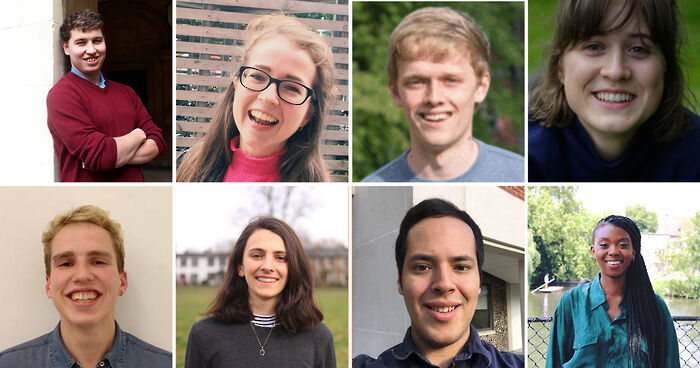Candidates for NUS delegate face off at hustings
Debate focused on careerism, the NSS boycott, and the NUS’ low profile among students

Candidates in the upcoming elections for delegates to the National Union of Students’ (NUS) annual conference participated in a hustings on Monday evening, answering questions on a range of issues facing the student body.
Eleven students are running for the five positions on the body of delegates, who will represent the University at the NUS conference in Spring 2018, alongside CUSU President Daisy Eyre, who has a guaranteed place.
To open the hustings, each of the candidates gave a 60-second speech detailing why they thought they should be elected as a delegate. Each was then questioned about their attitude towards the NUS, and how they would fulfil the role of delegate. Questions were the welcomed from the floor.
When asked to name the NUS’ best achievement in recent years, many candidates cited the election of a full-time Transgender Officer, Jess Bradley, in March. Several candidates also pointed to the success of the boycott of the National Student Survey last year, as well as the continued support the organisation offers to EU and international students in the wake of the EU referendum.
Their recent work on sexual assault policies was especially praised by candidates Lola Olufemi and Miriam Gauntlett. Candidate Laurie O’Connel admired the work the NUS has done in campaigning against fee hikes, privatisation of education, homophobia and oppression, but said that “I don’t necessarily feel the impact of these decisions has been felt throughout the student body”. He went on to suggest that more needed to be done in these areas.
Several candidates raised allegations of ‘careerism’ amongst NUS delegates, expressing their concerns that the conference was being used by some individuals as a personal platform. O’Connel stressed that the NUS should avoid becoming simply a way for delegates to “bolster their CVs,” and should “not be scared to be an actual union”.
Candidates Keelan Kellegher and Angus Satow also echoed his sentiments, criticising some delegates whom they believed used their role solely as an entrypoint to a career in politics. All three candidates also suggested that the NUS needed to establish better links with other organisations in order to create a bigger impact.
Another focus of the debate was the lack of awareness of the NUS and its work among students. Candidate Carine Valarché said that many people she has talked to in her campaign had no idea what the NUS did, stressing the need for the union to raise its profile among students, because “we are accountable to them.” This issue was also raised by candidates Florence Oulds and Martha Krish, who believed that the lack of knowledge about it prevented people from getting involved. Olufemi suggested that this was partly a result of the NUS’ presence on social media, which she said was insufficient.
At the end of the hustings, there was chance for the audience in attendance to ask questions. One member of the audience asked what each of the candidates had done to support divestment; all candidates except for Conor MacDonald said they were in favour of divestment. At this point there was some confusion as another candidate, Valarché, left the room.
The NUS encompasses 600 student unions, representing over 95% of all higher and further education unions in the UK. Each University sends 6 delegates, one of which has to be the current Student Union President, and the delegation must have at least 3 self-defining women. At the National Conference, delegates have the opportunity to decide the political direction of the organisation, as well as elect the president and vice-president for the year ahead.
Hustings were also held for the positions of Part-Time Executives in CUSU’s Development, Education, Access and Funding, Welfare and Rights, and Ethical Affairs Teams.
Voting for this year’s delegates, and CUSU Part-Time Executives, opens at 9am on Tuesday 31st October and closes at 5pm on Friday 3rd November
This article was amended to clarify events at the end of the hustings, following the question about divestment
 Features / Cloudbusting: happy 10th birthday to the building you’ve never heard of30 March 2025
Features / Cloudbusting: happy 10th birthday to the building you’ve never heard of30 March 2025 News / Uni offers AI course for Lloyds employees30 March 2025
News / Uni offers AI course for Lloyds employees30 March 2025 News / Cambridge University Press criticises Meta’s ‘dismaying’ use of copyrighted material28 March 2025
News / Cambridge University Press criticises Meta’s ‘dismaying’ use of copyrighted material28 March 2025 News / Ski mask-wearing teens break into Caius accommodation27 March 2025
News / Ski mask-wearing teens break into Caius accommodation27 March 2025 Sport / Light Blues prevail in thrilling Varsity encounter29 March 2025
Sport / Light Blues prevail in thrilling Varsity encounter29 March 2025






